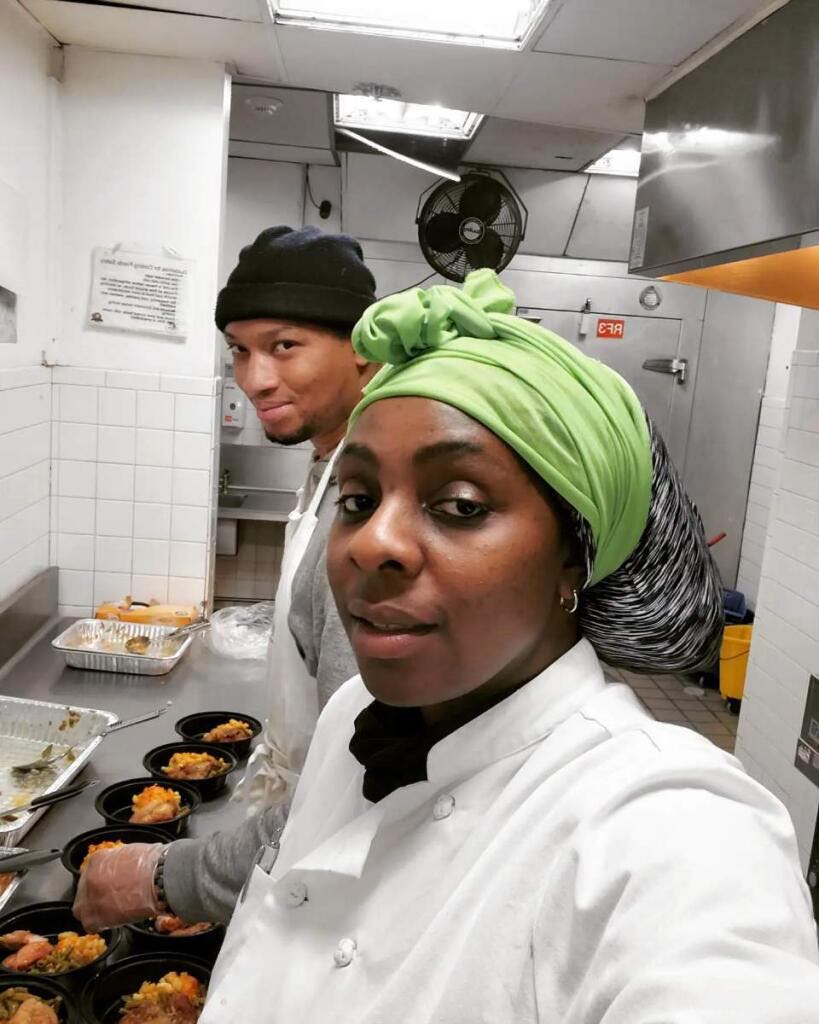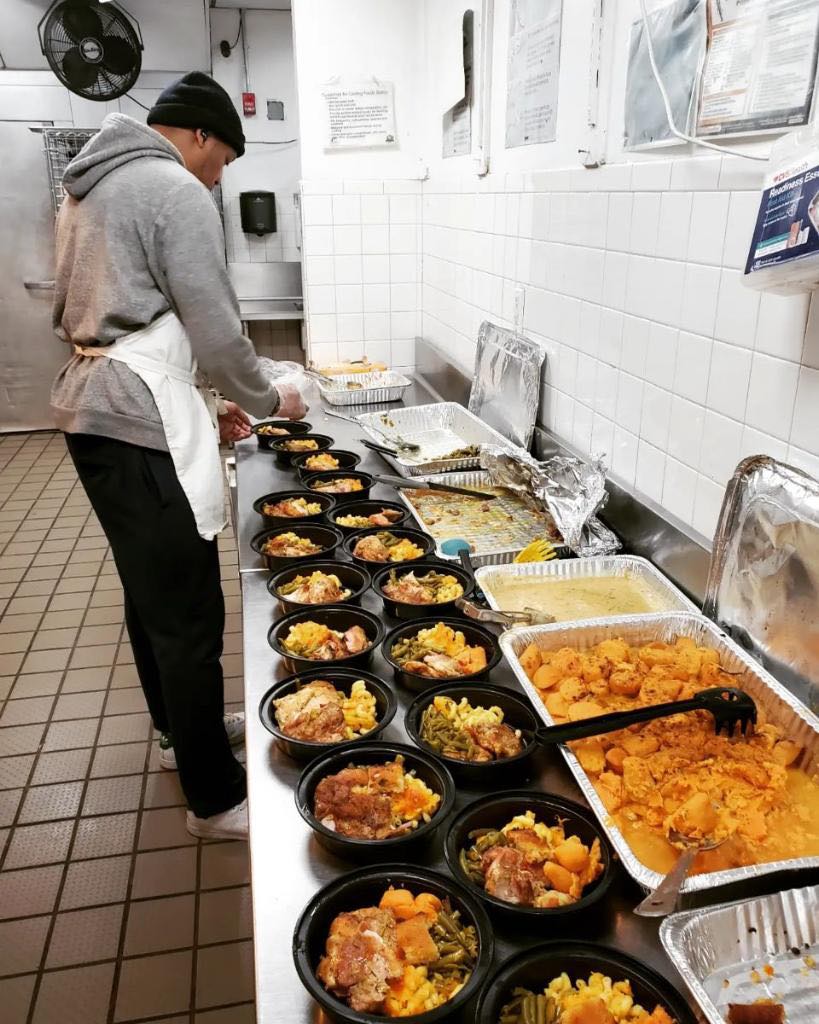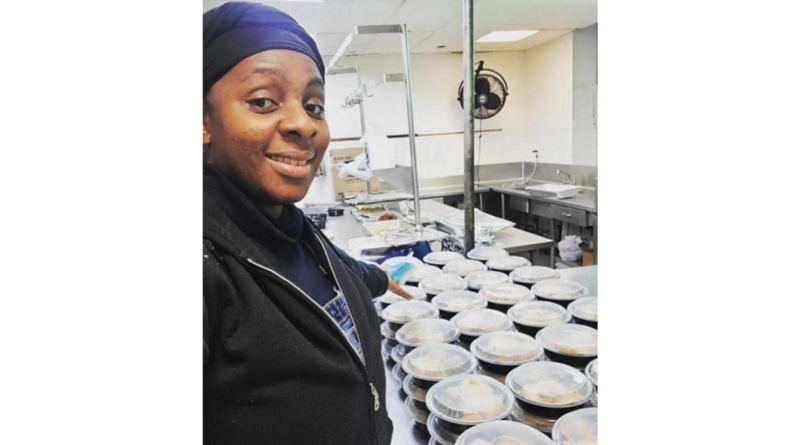Meet Niani Taylor, Food Business Pathways Graduate
To take her mind off her seemingly endless search for work, Niani Taylor started spending more time in the kitchen trying out new recipes. Working for years in various finance jobs, Ms. Taylor cooked only for family and friends in her free time. However, cooking became therapy for Ms. Taylor after losing her day job at a bank.
“Cooking and trying new recipes has helped me in those times that I have been in between jobs,” said Ms. Taylor. “It happens a lot in the finance industry. A lot of layoffs had nothing to do with me, but they registered with me psychologically. I felt like a failure. I wanted to move out of my NYCHA apartment, but I couldn’t move if I had interrupted employment. That’s why cooking became another way of not focusing on the problems when I’m home.”
Ms. Taylor is a graduate of NYCHA’s Food Business Pathways (FBP) program, a free business accelerator program operated by the Authority’s Office of Resident Economic Empowerment & Sustainability (REES). It provides free business development training to help NYCHA residents and NYCHA Section 8 voucher holders start or grow their own food businesses as part of New York City’s efforts to support homegrown entrepreneurs.
“I grew up in NYCHA,” Ms. Taylor said. “My family – including my uncle, my aunt, and I – we all liked to cook. My aunt had a small place at the beginning of the 2000s, and I used to help her in the kitchen. Cooking was part of what I liked to do when I was around my family.”
Ms. Taylor has been a resident of Van Dyke Houses since 1998. In 2015, she enrolled in the second cohort of the FBP and started a new job with Deutsche Bank. Years later, Ms. Taylor would remember those months with a smile.
“I was enrolled in the Food Business Pathways program, had a full-time job, and at the same time started my food business, so 2015 was a pretty crazy year,” she noted. “I’d love to tell the story that this was a big plan and strategy, but the only strategy I had when I started the business was: In case I ever get laid off again, I don’t have to go look for another job. I was exhausted from job interviews, resumes, getting hired, and being laid off again.”
Residents accepted into the FBP program receive 10 weeks of business training, grants to pay for a food handler’s license and business incorporation, business coaching, and an opportunity to win free commercial kitchen space. “When I began Food Business Pathways, I didn’t have anything else in mind other than building a business out of the fact that I liked to cook,” Ms. Taylor explained. “Most of the participants already had plans about having their own restaurants or food trucks. They already knew what they wanted to do. It took me eight weeks to figure out what I wanted to do.”
Currently, Ms. Taylor and her partner Chuck Nwigwe operate “Munch Hours,” which serves a range of healthy whole foods during brunch hours to community and private events: “My tagline is ‘garden-to-plate.’ I love cooking vegetables and presenting new ways of cooking. I make food for everyone, including people with dietary restrictions.”

Ms. Taylor does it all – negotiates contracts, cooks and delivers food, makes food purchases, manages paperwork, and more. Being an FBP graduate helps her get opportunities to cater or sell food during various NYCHA events. Munch Hours’ largest order so far was from NYCHA, too. “In 2020, NYCHA contracted with me to prepare 2,000 meals and deliver them to five developments in Brooklyn,” Ms. Taylor explained. “That was the largest catering event. And the longest was being a vendor at the Foodie Spot, the Governors Island food container in 2021,” a partnership with NYCHA REES and the Trust for Governors Island.
Audrey Washington, Assistant Director for Financial Capability and Resident Business Development at NYCHA REES, said: “One of the components of the FBP program is to provide market access opportunities for program graduates. NYCHA REES has been able to connect graduates to several business opportunities. While we want to teach them how to market and grow their businesses, we know that it is also important to connect them to opportunities that will increase their revenues and business experience.”
“NYCHA is my client and my landlord,” noted Ms. Taylor. “I’m very committed to helping NYCHA assist residents to become economically self-sufficient. I’m always on board to help people understand that they can uplift themselves economically even if they’re having some downtime in between jobs.”
Ms. Taylor said she was planning to move out of her NYCHA apartment, but business costs kept increasing in New York. Had it not been for NYCHA, she would have lost both her business and home. “There’d be no way I could afford higher rent after losing my job in 2019. I wouldn’t be able to keep my business. Anywhere else, I’d have probably gotten evicted because I wasn’t earning any money,” said Ms. Taylor. “I always had this love for NYCHA because I’ve been able to transition, develop, and grow; still be independent; and have a home.”



